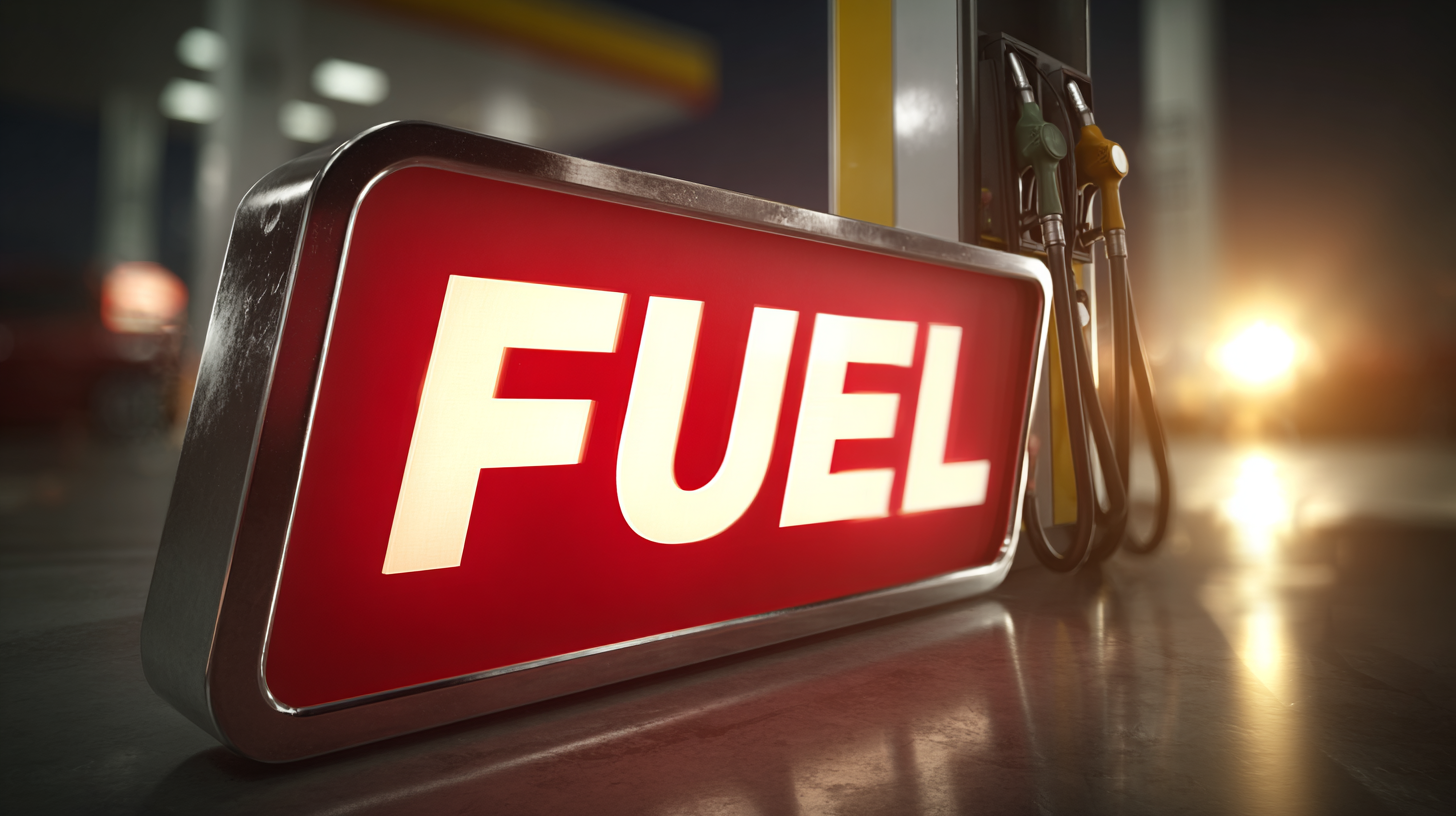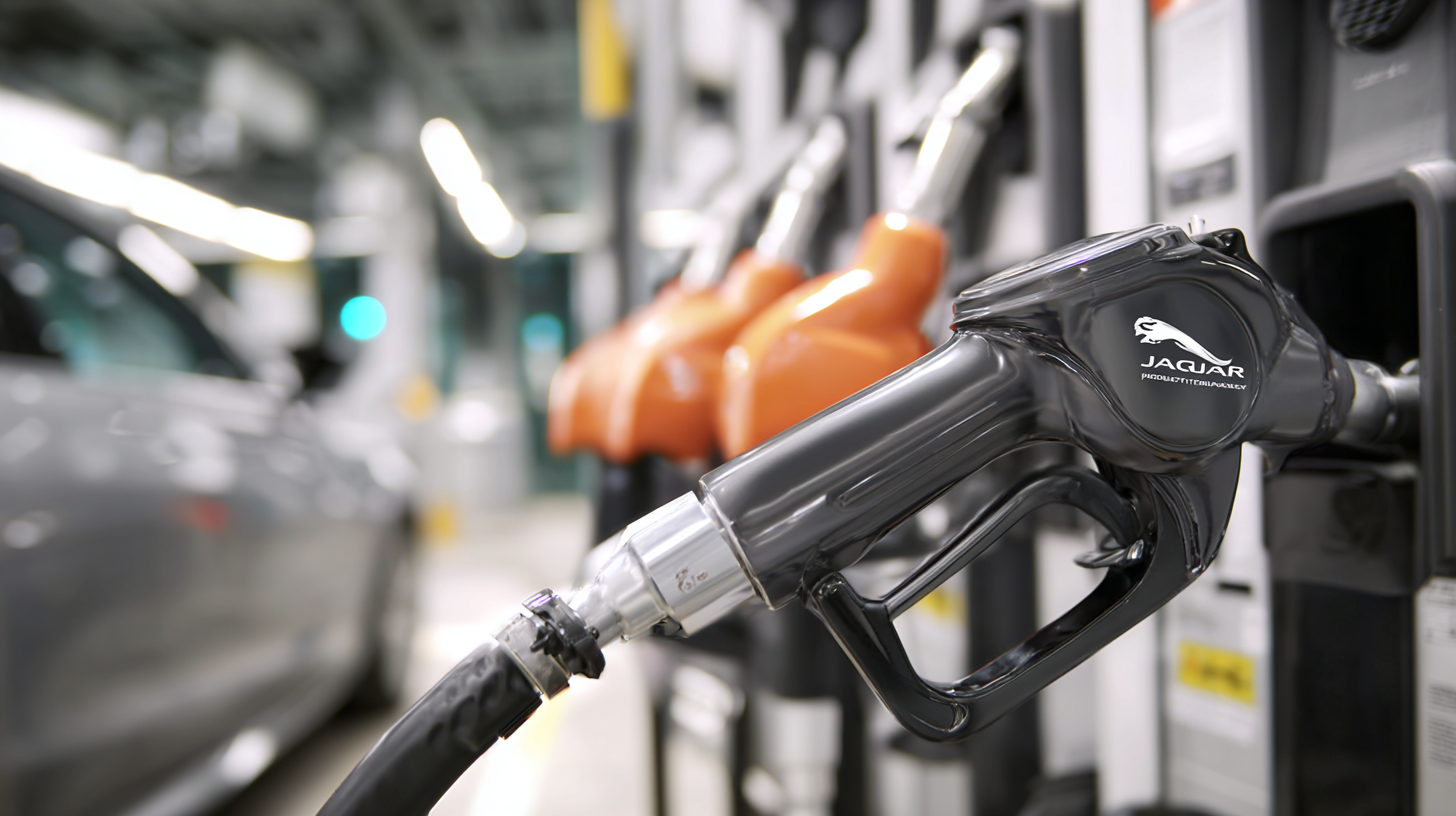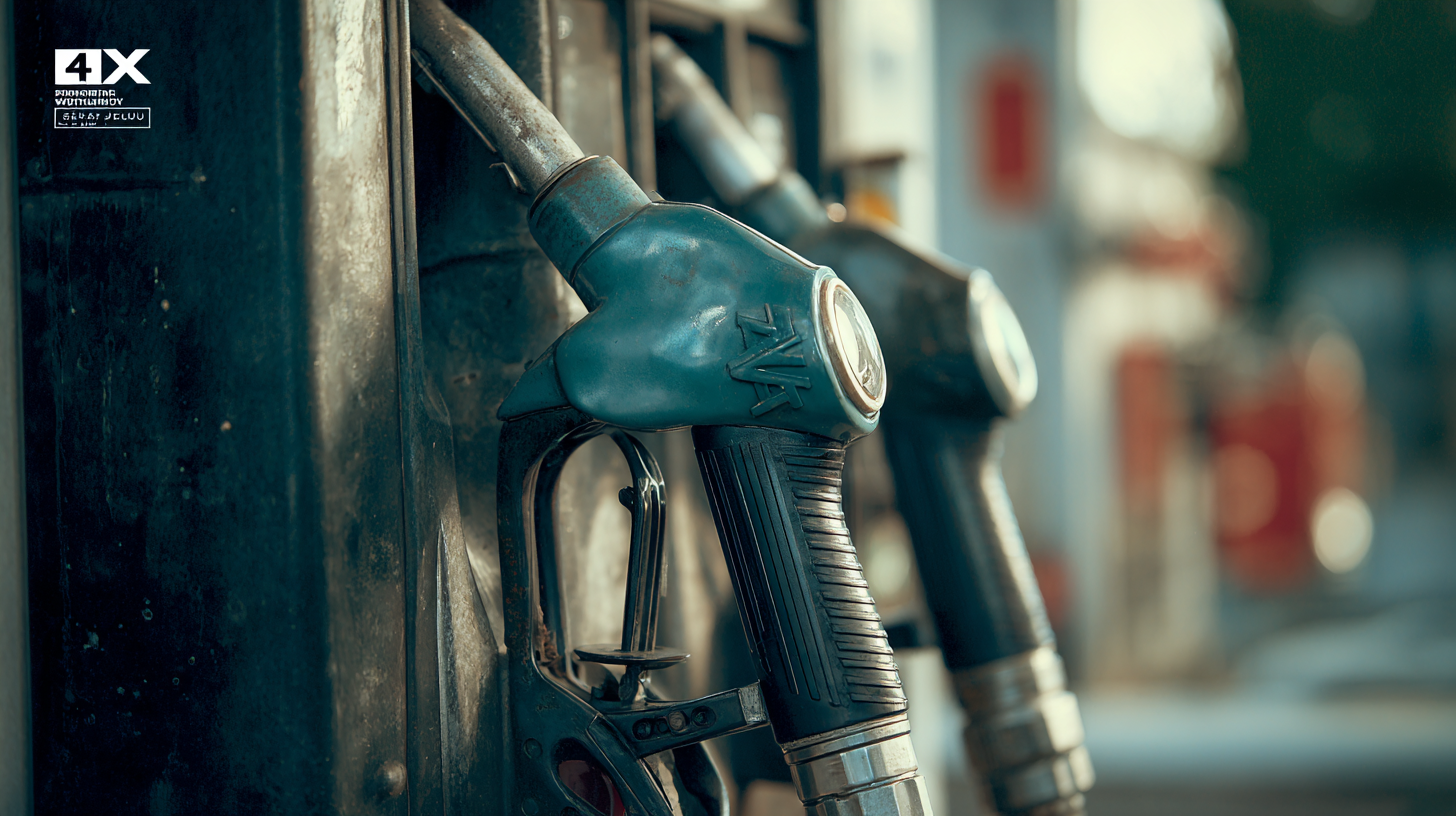
In the ever-evolving landscape of automotive components, the significance of a reliable Jaguar Fuel Pump cannot be overstated. As the global automotive fuel pump market is projected to reach $17.9 billion by 2025, driven by increasing vehicle production and stringent emission regulations, understanding the nuances of import certifications becomes paramount for both manufacturers and consumers.
 A high-quality fuel pump not only ensures optimal engine performance but also significantly enhances fuel efficiency and reduces emissions, aligning with the rising demand for sustainable automotive solutions. With various certifications in play, navigating this complex terrain can be daunting; however, our comprehensive guide aims to demystify the process and highlight the best Jaguar Fuel Pump options available in the market today.
This guide will equip you with the insights needed to make an informed choice, ultimately contributing to a more efficient and environmentally friendly driving experience.
A high-quality fuel pump not only ensures optimal engine performance but also significantly enhances fuel efficiency and reduces emissions, aligning with the rising demand for sustainable automotive solutions. With various certifications in play, navigating this complex terrain can be daunting; however, our comprehensive guide aims to demystify the process and highlight the best Jaguar Fuel Pump options available in the market today.
This guide will equip you with the insights needed to make an informed choice, ultimately contributing to a more efficient and environmentally friendly driving experience.
Navigating global import certifications for automotive components, particularly fuel pumps, is crucial as the landscape shifts due to recent tariff changes and regulatory measures. The enforcement of new U.S. tariffs has already created ripples across the auto industry, potentially straining businesses reliant on imported parts. A recent report from the Auto Care Association highlights that Trump's 25% tariffs could significantly impact an automotive parts industry valued at over $100 billion, emphasizing the need for stakeholders to understand the evolving certification requirements to maintain compliance and market access.
The global market for automotive components requires strict adherence to import certifications, which vary by region and are influenced by geopolitical tensions. For instance, India's consideration to reduce car import tariffs to 10% could open new avenues for trade, but only if companies align their products with the required certifications. This is particularly urgent as the European Union urges India to eliminate these tariffs under a longstanding trade agreement, positioning compliance as a key factor for success. With the automotive sector's reliance on interconnected supply chains, ensuring that components like fuel pumps meet international standards is essential for suppliers aiming to navigate the complexities of the global market.

 When selecting a Jaguar fuel pump, understanding the key factors that influence this choice is essential for optimal vehicle performance and reliability. One significant aspect to consider is the fuel pump's flow rate, typically measured in liters per hour (LPH). According to a 2022 industry report by Automotive Insights, fuel pumps with a flow rate exceeding 255 LPH are often recommended for models that require enhanced fuel delivery, especially those outfitted with performance modifications. This ensures that the engine receives adequate fuel under various driving conditions, preventing potential stalling or power loss.
When selecting a Jaguar fuel pump, understanding the key factors that influence this choice is essential for optimal vehicle performance and reliability. One significant aspect to consider is the fuel pump's flow rate, typically measured in liters per hour (LPH). According to a 2022 industry report by Automotive Insights, fuel pumps with a flow rate exceeding 255 LPH are often recommended for models that require enhanced fuel delivery, especially those outfitted with performance modifications. This ensures that the engine receives adequate fuel under various driving conditions, preventing potential stalling or power loss.
Another critical factor is the pump's compatibility with specific Jaguar models, as outlined in the Jaguar Performance Parts Catalog. It identifies the need for OEM (Original Equipment Manufacturer) pumps to maintain warranty coverage and performance levels. In addition, the durability of materials used in fuel pumps, such as polymer composites and stainless steel, greatly impacts longevity and resistance to corrosion. Research by the Society of Automotive Engineers (SAE) suggests that fuel pumps constructed from high-grade materials can extend the lifespan by up to 30%, reducing overall maintenance costs for Jaguar owners. This knowledge empowers consumers to make informed decisions that enhance both performance and value.
When it comes to selecting the best fuel pump for your Jaguar, understanding the specifications and performance metrics is crucial. The market offers a variety of options, each designed to cater to different models and driving conditions. Key specifications to consider include the pump's flow rate, pressure ratings, and compatibility with OEM fuel systems. For instance, some high-performance pumps are engineered for racing applications, boasting increased flow rates and higher pressure capabilities, while others prioritize durability and efficiency for everyday driving.
Comparing these characteristics is essential for ensuring optimal vehicle performance. A fuel pump with a higher flow rate may provide better acceleration and throttle response, but it’s important to balance this with the vehicle's overall needs. Additionally, performance metrics such as longevity and reliability play a significant role in cost-effectiveness over time. By analyzing various Jaguar fuel pump models and their respective specifications, car enthusiasts and everyday drivers alike can make informed decisions that align with their driving style and vehicle performance requirements.
| Fuel Pump Model | Flow Rate (L/h) | Pressure (bar) | Operating Temperature (°C) | Weight (kg) |
|---|---|---|---|---|
| Model A | 250 | 3.5 | -20 to 85 | 1.2 |
| Model B | 300 | 4.0 | -20 to 90 | 1.5 |
| Model C | 280 | 3.0 | -10 to 80 | 1.3 |
| Model D | 320 | 4.5 | -15 to 85 | 1.7 |
| Model E | 270 | 2.5 | -20 to 75 | 1.1 |
Navigating the complex landscape of global import certifications is critical for ensuring that automotive components, such as fuel pumps, meet stringent safety and quality benchmarks. Compliance standards play a vital role in this process, assisting manufacturers in adhering to local and international regulations. Industry reports indicate that approximately 80% of automotive recalls are linked to component failures that stem from inadequate compliance with safety standards. This underscores the necessity of rigorous testing and certification for products entering the market.
For instance, the International Organization for Standardization (ISO) provides a framework that outlines best practices for manufacturing and quality assurance, significantly reducing the likelihood of defects. In the automotive sector, fuel pumps must meet standards like ISO/TS 16949, which emphasizes continual improvement and defect prevention. Adopting such compliance measures not only enhances product durability but also fosters consumer trust. With the global automotive industry projected to reach $3.6 trillion by 2025, the importance of quality assurance through compliance standards cannot be overstated, particularly for critical components like the Jaguar fuel pump, which must operate flawlessly to ensure vehicle safety and performance.
Navigating regional regulations for import certification processes is crucial for automotive industry players, especially in the current landscape of international trade. As countries increasingly grapple with changes in tariff structures and import duties, businesses must be proactive in understanding the certification requirements specific to their markets. From emissions standards to safety certifications, each region presents unique hurdles that can significantly impact the timely introduction of automotive parts, including fuel pumps.
With recent shifts in U.S.-Mexico trade relationships and changes in tariff policies, companies should stay informed on the potential challenges and opportunities that arise from these developments. For instance, stricter import duties could affect sourcing strategies, compelling businesses to reassess their supply chains and seek alternatives that comply with evolving import regulations. Automotive parts manufacturers and distributors must prioritize compliance, investing in thorough research and documentation processes to navigate the complexities of regional regulations effectively. By doing so, they can not only mitigate risks but also uncover new avenues for growth in an ever-changing global marketplace.
